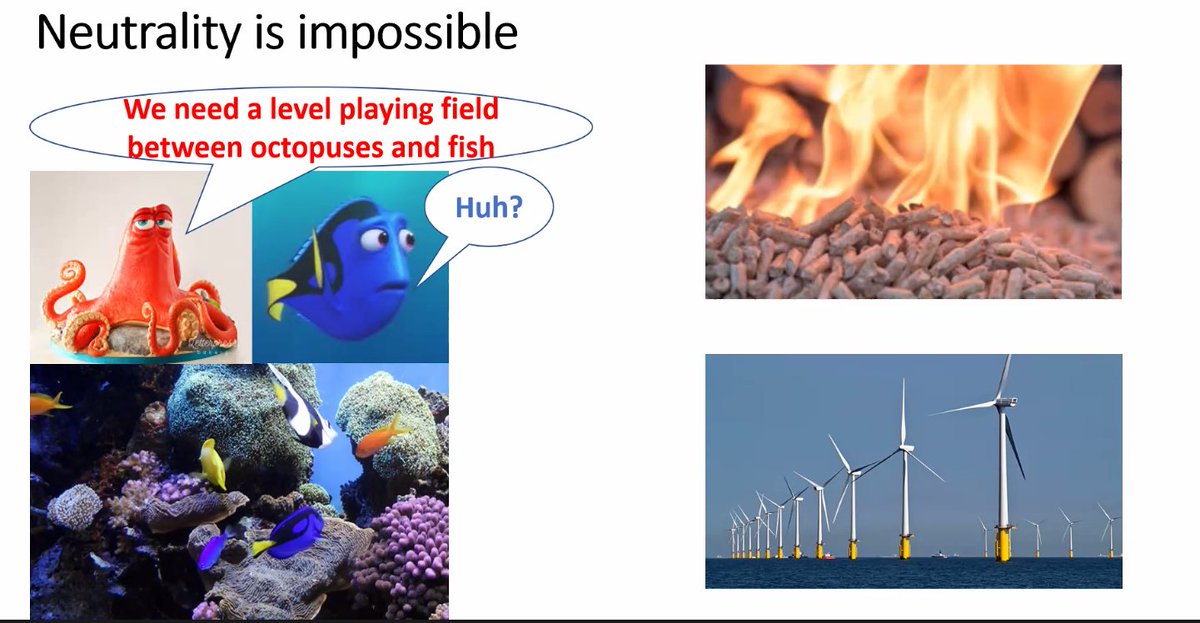Excellent talk by Simon Sharpe @INETOxford just now, pointing out how the #climate crisis challenges economic #orthodoxy in several ways. Spoiler 🔥"Economics as a discipline has forgotten what the scientific method is" (@camjhep pointing to #heterodox ideas in defense)🧵
https://twitter.com/INETOxford/status/1656623394681397253
💡The premise: To meet our #climate goals, we need to reduce emissions globally by about 8% per year by 2030, as compared to the 1,5% p.a. achieved so far - hence the title of his book #FiveTimesFaster
1⃣ An #economy going through the rapid and far-reaching systems #transition this requires (acc. to @IPCC_CH) cannot be analysed in terms of #equilibrium, a sitation in which "nobody has any immediate reason to change their actions" according to the Oxford Dictionary of Economics. 

2⃣ Instead of a static, predictable system that can be tweaked at the margins by #economic #policy, it should be seen as an #ecosystem of people that should be analysed using insights from #evolutionary #biology. 

3⃣ The systems #transition can then be seen as a sudden shift between two paradigms: in between is the tipping point, which we're really close to in #renewables and #electric vehicles. Reinforcing #feedbacks help along the way towards #tipping 



4⃣ On the recent calls for "technology neutrality" spurred by the onsetting technology shifts: In an ecosystem, "neutrality is impossible". Instead, "you're always supporting someone: if you do nothing it's the status quo, so be careful". Loving the cartoon! 🐙😄 

5⃣ Finally, some great empirical stuff on how #regulation forces #innovation by reallocating finance. Also very relevant regarding the current backlash against 🇪🇺 regulatory push towards phasing out fossil #heating and #vehicles. 💪 

I should of course add that #economics is as diverse as the people doing it, has its own branch called #EvolutionaryEconomics, and many smart & critical economists are developing new approaches, humbly trying to advance the discipline 1/
Much of the criticism levied at #economics addresses, in my view, that certain strands of the discipline lend themselves to upholding a political status quo which increasingly frays at the #social and #environmental edges. Economists need more awareness of #power #structures 2/2
• • •
Missing some Tweet in this thread? You can try to
force a refresh




